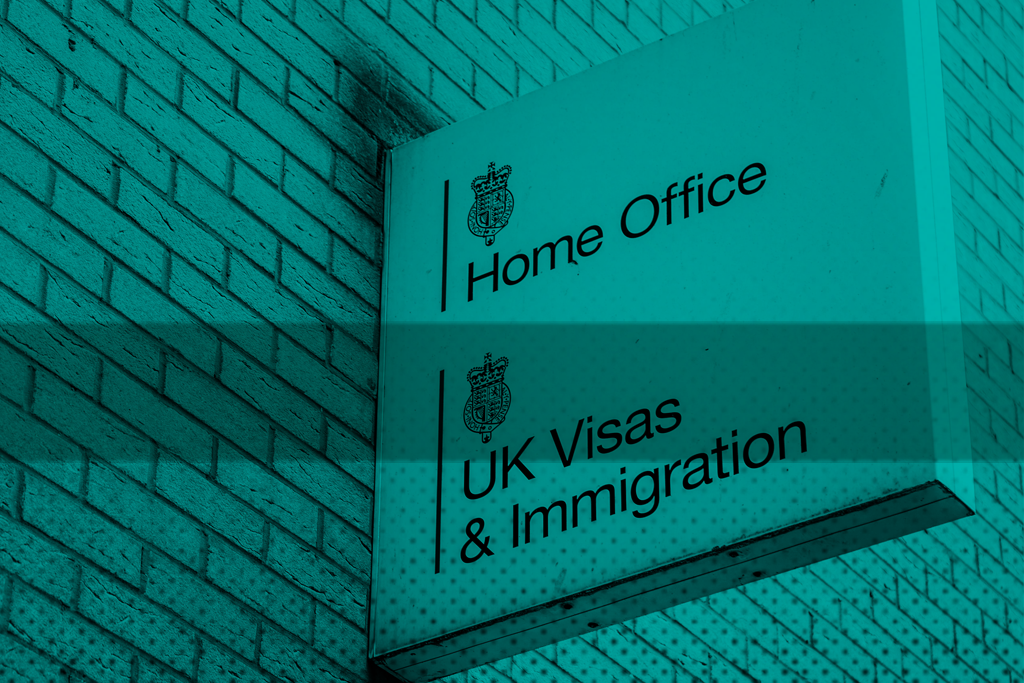
UK Tightens Immigration Rules: Skilled Visas, Family Income & Student Reforms in Focus
In May 2025, the UK government published a sweeping immigration white paper titled “Restoring Control over the Immigration System.” Framed as a reset of the country’s immigration priorities, the reforms are intended to curb net migration— which hit a record 906,000 in 2023—and focus on attracting high-skilled talent while tightening access to lower-wage roles and family routes.
This blog takes a deep dive into the changes, how they affect skilled workers, families, and international students, and what the pros and cons are for individuals impacted.
🔍 Overview of Major Changes
The 2025 white paper introduces reforms in several key areas:
1. 🎓 International Students
- Graduate Route Cut: The post-study work visa will be reduced from 2 years to 18 months for master’s and undergraduate students.
- 6% Tuition Levy: A new 6% levy on tuition fees will be applied to all international students. This money will go toward funding domestic skills training.
- English Language Requirements Expanded: Higher language standards will now also apply to adult dependants.
- Stricter Compliance for Institutions: Universities with poor immigration compliance may lose their sponsorship licenses.
2. 💼 Skilled Worker Visas
- Narrowed Occupation Scope: Only graduate-level roles will qualify.
- Shortage Occupation List Replaced: A Temporary Shortage List will focus only on urgent, short-term labor gaps.
- Settlement Timeline Extended: ILR (Indefinite Leave to Remain) eligibility will increase from 5 years to 10 years.
3. 👨👩👧 Family Visas
- Income Requirement Raised: The minimum income to sponsor a partner will rise to £38,700 by early 2026.
- More Rigorous Entry Conditions: Language and integration standards will be raised.
- Dependants for Low-Wage Roles Limited: Especially relevant to roles previously filled via the care worker visa route, which is being closed to new applicants.
🎯 Goals Behind the Reforms
The UK government says the changes aim to:
- Reduce over-reliance on immigration to fill low-wage roles
- Prioritize domestic workforce training
- Create a “high-wage, high-skill economy”
- Address public concern about rapid population growth and housing strain
✅ Pros of the New Immigration Reforms
1. Focus on Skills
Shifting to a graduate-level-only skilled visa pool means more emphasis on quality and economic contribution, attracting global professionals in areas like STEM, AI, and medicine.
2. Encouragement of Domestic Training
With the tuition levy helping fund domestic skill programs, the UK is trying to reduce long-term reliance on overseas workers.
3. Clarity and Control
The new system offers more structured pathways, reducing grey areas in visa misuse and boosting enforcement capacity.
❌ Cons & Challenges for Immigrants
1. Reduced Access and Shorter Timelines
Cutting the Graduate Route to 18 months gives students less time to find suitable work or sponsorship—especially in competitive sectors.
2. Higher Financial Barriers
The £38,700 threshold for family sponsorship is well above the UK median salary, potentially separating families who can’t meet the criteria.
3. Impact on Care Sector and Universities
The closure of care visas and tuition levies may lead to staff shortages in social care and decreased international enrolment, which could financially harm UK universities.
🧭 Who Will Be Most Affected?
🎓 International Students
- Particularly those without clear sponsorship opportunities post-graduation
- Families of students, due to increased language requirements and fewer dependant routes
👩⚕️ Care Workers & Low-Wage Sectors
- These routes are being closed or severely restricted
- Employers will face pressure to recruit and train UK-based staff
💑 Migrant Families
- Sponsoring a spouse or partner now requires a significantly higher income
- Naturalization and permanent residency routes are longer and more costly
🔧 Tips and Advice
If You’re an International Student:
Pros:
- UK degrees still hold strong global value
- 18 months is still a reasonable timeframe to secure sponsorship if you plan early
Cons:
- Less flexibility after graduation
- More costly due to tuition levy
Advice:
- Start job searching before graduation
- Focus on sectors with high sponsorship rates (e.g., tech, finance, healthcare)
- Stay updated on the Skilled Worker sponsor list
If You’re Planning Family Reunification:
Pros:
- Long-term plans still possible with sufficient income and planning
Cons:
- £38,700 is a steep requirement
- May force couples to delay or live apart
Advice:
- Explore alternative visa routes (e.g., Global Talent or Ancestry)
- Use spousal visa calculators to plan finances early
- Seek legal advice for complex family cases
If You’re a Skilled Worker:
Pros:
- Clearer, skill-focused immigration stream
- Settlement still possible (albeit with a longer timeline)
Cons:
- 10-year route to ILR delays citizenship
- Fewer eligible job roles
Advice:
- Ensure your occupation qualifies under the new system
- Stay with reputable sponsors who offer long-term employment
- Budget for extended visa renewals
📅 What Happens Next?
The proposals are expected to be implemented through secondary legislation over the remainder of 2025 and into early 2026. A consultation period with stakeholders is currently underway, but key components—like the Graduate Route cut and family income threshold—are likely to proceed as planned.
🛡️ What About Those Already in the UK?
If you’re already living in the UK on a valid visa—whether as a student, skilled worker, or family member—you are not subject to the new rules retroactively. The government has confirmed that existing visa holders will continue under the terms of their current visa until it expires.
✅ What This Means:
- Your visa conditions (duration, salary threshold, settlement timeline) remain unchanged.
- You can still apply for extensions or ILR based on the rules in place when your visa was granted.
- The new rules will only apply to new applications made after the changes come into effect (likely in late 2025 or early 2026).
🧭 Advice for Those Already in the UK
- Renew or Extend Early (If Possible):
If you’re eligible for an extension or next visa stage, consider applying before the new rules take effect. - Stay Informed:
Follow updates from the Home Office, your university, or immigration lawyer to ensure you don’t miss transitional deadlines. - Get Documentation in Order:
Keep thorough records of your current visa terms, employment, and education status to protect against unexpected enforcement issues. - Consider Your Long-Term Path:
If you plan to stay in the UK long-term, start mapping out your route to ILR or citizenship under your current conditions—before they change.
Bottom Line: You’re safe under your current visa, but act early and strategically if you plan to stay beyond its expiry. These windows of opportunity won’t last forever.
📌 Final Thoughts
The UK’s 2025 immigration reforms represent a significant turning point in how the country manages who can live, work, and study within its borders. With tougher rules on Skilled Worker visas, stricter family sponsorship requirements, and major changes for international students, the government is clearly signaling a move toward a leaner, high-skilled migration model.
While these changes may align with economic goals and public sentiment around migration control, they also introduce new challenges and financial barriers for many individuals and families—especially those from lower-income backgrounds or sectors like social care and education.
For students, the shortened Graduate Route and tuition levy mean less time and higher costs. For families, higher income thresholds could delay reunification. And for skilled workers, longer paths to settlement make long-term planning more complex.
However, those already in the UK are largely protected under existing rules, and with the right information and early preparation, many of these challenges can still be navigated successfully.
In this new immigration landscape, knowledge, timing, and strategic planning will be more important than ever. Whether you’re applying soon, currently living in the UK, or advising others, now is the time to act with clarity and confidence.
Stay informed. Plan ahead. And don’t navigate it alone.
RAQ Education London



 RAQ Education London
RAQ Education London